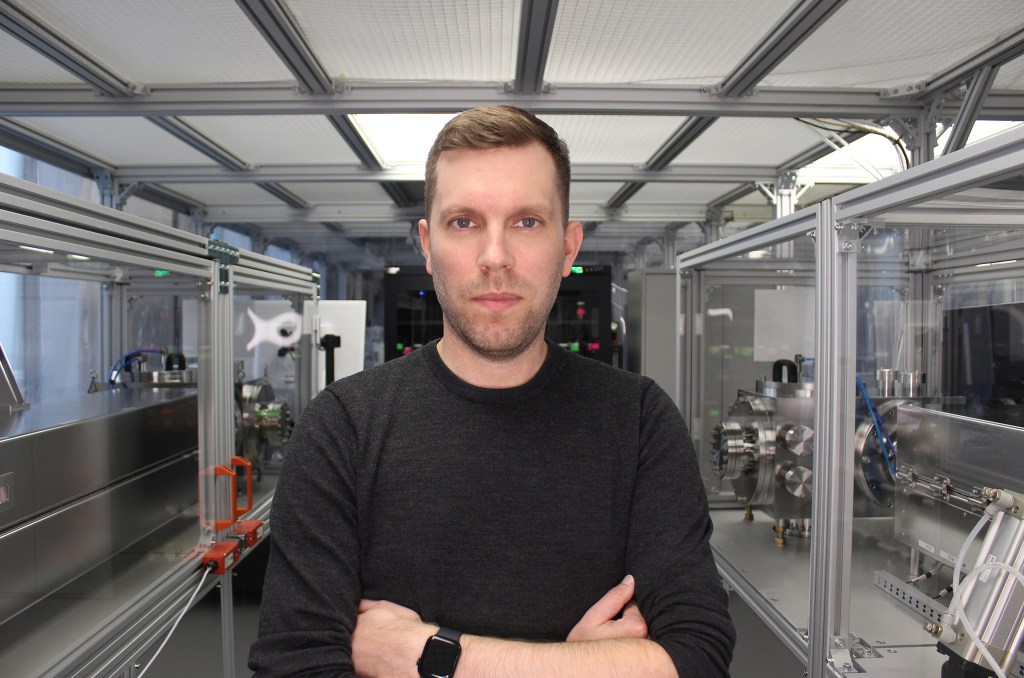OTI Lumionics, an eye-catching startup out of Canada that has been working on display materials for device makers to create uninterrupted, full-view displays on their devices without the need for “notches” or cut-outs to account for camera technology — and whose name has been connected with Apple as a key supplier for a future notch-free iPhone — has raised $55 million in funding.
The money will be used both to take its technology into production with a number of partners and to develop a secondary line of operations that was borne out of the first: OTI credits the breakthrough that it had with its own work on display materials to a “quantum and AI-driven computational platform” that it built itself, and so the plan will be to productize that as well to help other technologists and engineers solve their own thorny material science conundrums.
The funding is coming from a mix of strategic and financial backers that speak to its current business funnel, too: it includes LG Technology Ventures, Samsung Venture Investment Corporation, UDC Ventures (the venture arm of United Display Corporation), Anzu Partners and the Family Office of Lee Lau — LG, Samsung and UDC being some of the biggest names in display technologies. Areas where the display materials are likely to make an appearance in coming years include smartphones, tablets, laptops, AR and VR headset makers, televisions and potentially automotive applications.
OLED screens have changed the game when it comes to connected devices, literally and figuratively, with brighter and more contrasting colors, and better responsiveness that all improve the experience in visually intensive experiences like gaming, and much more.
But one of the shortcomings in their structure is that when they are used, typically in full-screen scenarios, manufacturers have had to create “notches” or other dark spaces to share that real estate with cameras and other technology needed for features like facial recognition, a challenge that becomes even more compounded when considering how and where newer technology, like transparent screens, might be used in the future (automotive windshields, for example, is one area where obstructing the viewing space would not work at all). It also means that there have been limitations in introducing features like touch ID on the smooth screens.
OTI’s breakthrough is something that it calls CPM Patterning, a new material and approach that allows for the cathode display technology to essentially be knit together with the sensor technology in a seamless design, so that the screen essentially becomes one with the functionalities of the cameras or other sensors, which it says also produces a more efficient process that uses less power. Michael Helander, the CEO and president of OTI (pictured, above), said that the process of coming up with the material was something that OTI could not have done without building and using its own quantum computing-based algorithms — the platform that it is looking to productize alongside this specific material. Helander said the platform runs using “classic hardware,” with some compute from third-party quantum companies like D-Wave.
Beyond coming up with the design, the company has already gone through the process of getting the production method tested and qualified by manufacturers, meaning that one typically long step in bringing something new to the market has already been passed, and that OTI’s technology is “production ready.” And if the name OTI rings a bell, you might recall that it was named as a key partner of Samsung’s in a report earlier this year, subsequently picked up by others, that alleged the two were working on building screens using the technology for a future generation of Apple’s iPhone.
This is a long-play game. In an interview, Helander would not comment on customers or where we might see OTI’s technology in action first, but he did say that it was unlikely to be making its way to consumers’ hands for some years still.
He added that although hardware companies are known to build and acquire IP technology all the time, there is an interesting opportunity here for more nimble startups that are focusing on and fixing very specific problems.
A company like Samsung, he pointed out, has made a few acquisitions of material science startups, but “the challenge is that because of the timelines and work involved, if one device maker buys from one manufacturer [but not another], or changes its strategy, then the whole supply chain could shift. It’s a lot of investment and it’s a risk, so you see a lot of cases where display competitors will co-invest in supporting smaller companies, and even collaborating,” as LG, Samsung and UDC are doing here with OTI. “Even though they would like to have total exclusivity, supporting them together can be beneficial for everyone.”
Robert McIntyre, LG Technology Ventures’ managing director, said that the display material alone sealed the deal for investing in OTI, with the platform opening the door to more possible collaborations in the future.
“OTI at its core has a materials discovery engine that we think is uniquely powerful, using AI and quantum computing to run simulations to arrive at material endpoints that were previously undiscovered,” he said. “The unique thing about the company is that it realizes the importance of bringing applications to market.”






























Comment